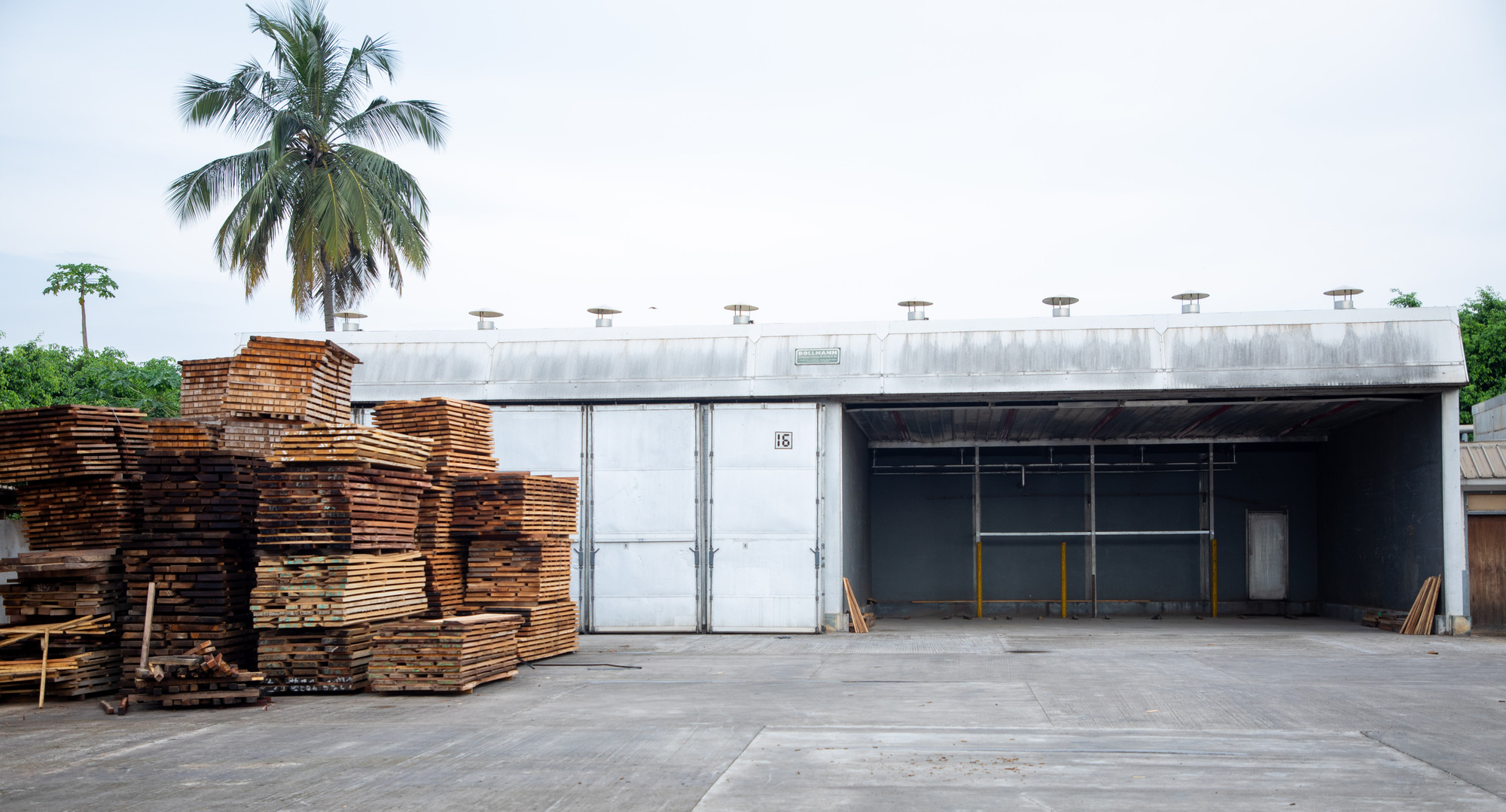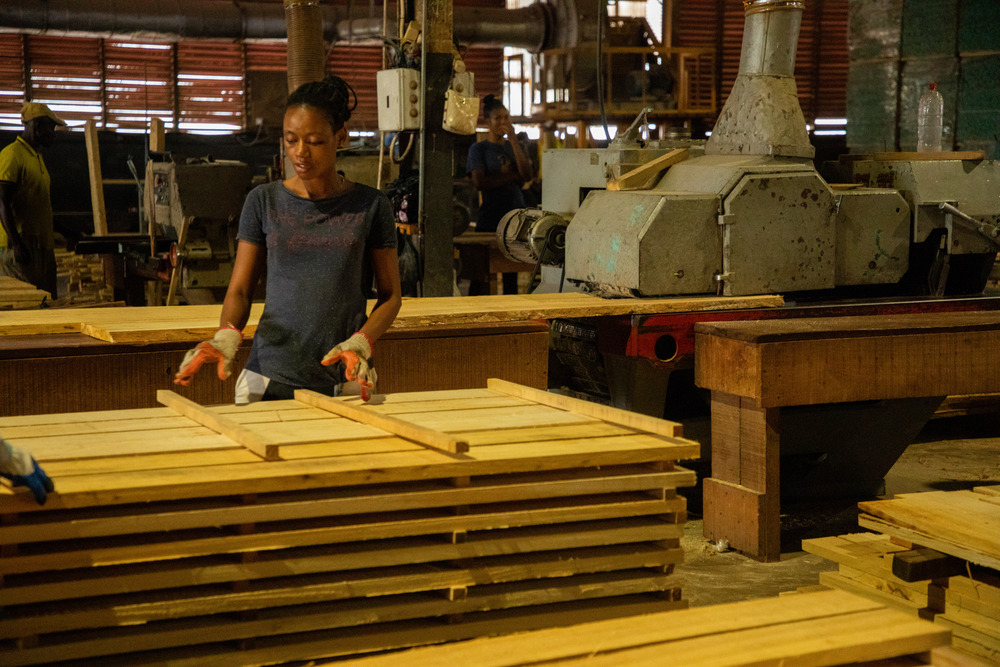GTI Report: most pilot countries saw growth or recovery in September
23 October 2025, Yokohama

The factory of Logs and Lumber Limited in Ghana. © Peter Zormelo
The timber sector in Ghana and China posted further growth in September 2025, while some countries showed signs of partial recovery despite a decline in overall performance, according to the latest Global Timber Index (GTI) Report. The ITTO-supported GTI tracks the performance of the timber sector in pilot countries in Africa, Asia, and Latin America.
The GTIs for Ghana (61.0%), China (51.7%), and Indonesia (50.1%) were all above the 50% threshold. Notably, Ghana remained in expansion territory for the ninth consecutive month, and China sustained a generally upward trend over the past six months, with a slight contraction only in July.
Ecuador, with sample enterprises beginning to submit production and operations data this month, recorded a reading of 49.1%. The GTI readings for the Republic of the Congo (46.9%), Thailand (46.5%), Gabon (42.5%), Brazil (40.2%), and Malaysia (26.2%) were also below the 50% threshold. However, the decline has eased in most of these countries.
GTI sub-indices revealed that the volume of harvesting increased in Indonesia, Malaysia, Ghana and Ecuador, which may help ease the shortage of logs. In China, the volume of production increased for the seventh consecutive month. On the demand side, several markets also showed growth, particularly the domestic market in Indonesia and the export market of Thailand.
However, the GTI-Producers Index, a specialized index for timber production, was at 42.8% in September, and the GTI-Woodbased Panel Index, a specialized index for wood-based panels, stood at 44.3%, indicating that both subsectors declined overall in September.
On 29 September, US President Trump announced 10% tariffs on imports of softwood timber and lumber, as well as 25% levies on kitchen cabinets, bathroom vanities and upholstered wooden furniture, with further increases set to take effect on 1 January 2026. The levies are expected to impact timber markets in many regions, prompting the sector to explore market diversification.
For example, in Brazil, the states of Paraná and Santa Catarina, heavily reliant on exports to the United States, are the most affected, and there are growing calls among businesses to develop new markets, according to the GTI Report. Also, under a newly signed Comprehensive Economic Partnership Agreement with the European Union, Indonesia can hope to boost exports of furniture and other products to the bloc.
Nevertheless, in Thailand, some timber enterprises are calling on domestic businesses not to withdraw from the US market, but to enhance their competitiveness there.
The latest GTI Report also highlights efforts to advance sustainable forest management in the pilot countries, including the Tropical Forest Forever Facility that Brazil plans to launch at the COP 30 climate summit in November.
The monthly GTI Report, GTI-Producers Report and GTI-WBP Report are available free at www.itto.int/gti.
